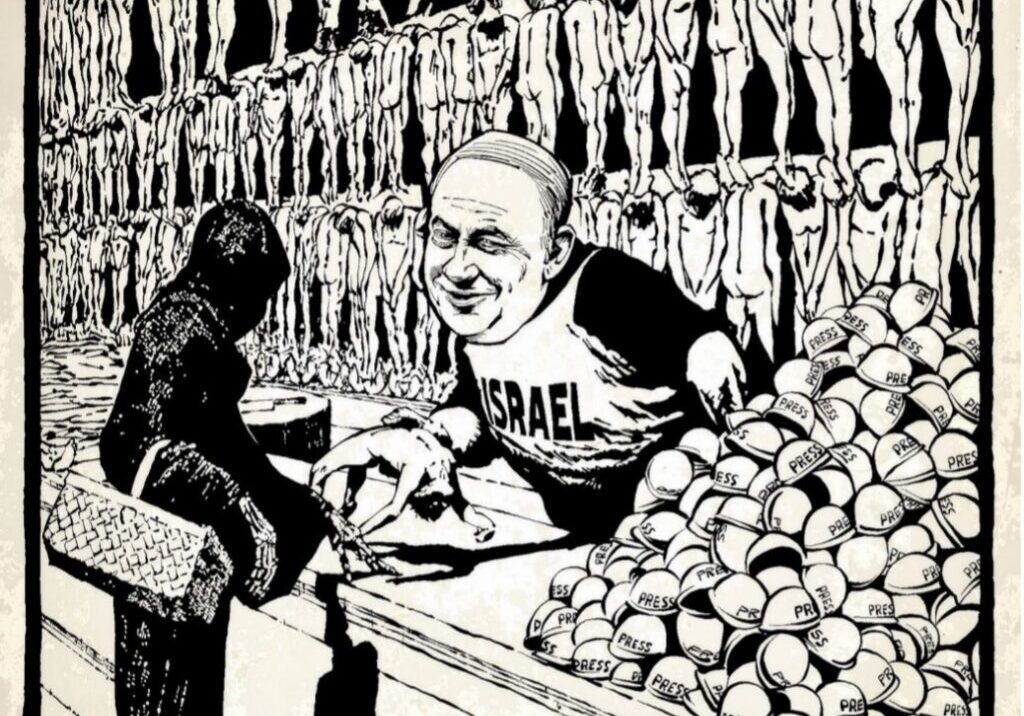Australia/Israel Review
Europa Europa: London Calling
May 27, 2008 | Douglas Davis
Douglas Davis
“Why should voters support you, Boris?” a journalist called out in the midst of the recent election campaign for London mayor.
“Cripes,” said the Conservative candidate, ruffling his fashionably dishevelled thatch of blond hair. “Because voting Tory will cause your wife to have bigger breasts – and it will increase your chances of owning a BMW M3.”
The gaggle of assembled hacks chortled at what they took to be yet another gaffe by Boris Johnson. The joke was on them. When the two million-plus votes were counted in last month’s mayoral election, Boris had delivered a knock-out blow to two-term incumbent, Ken Livingstone.
Boris – one of the few British politicians who is instantly recognised by his first name – might look and talk like a bumbling buffoon, as the headline writers like to portray him, but he did not win the election and become one of the most powerful political figures in Britain by playing the upper-class twit.
There have indeed been blunders and scandals during a tempestuous career in journalism (he was editor of the Spectator) and politics (he holds one of the safest Tory seats in the country), but appearances can be deceiving. A Rolls-Royce brain, honed at Eton and Oxford, purrs quietly behind that shambling exterior.
What gives the London mayoral election significance among the political cognoscenti is that, given a choice between far-left Livingstone (who numbers Fidel Castro and Hugo Chavez among his best mates) and posh Boris, the ethnically diverse, class-conscious, Labour-leaning voters of London handed Boris a decisive mandate.
The election campaign, naturally, focused on parochial issues – transport, housing, crime – but, given the personalities and predilections of the two major candidates, particularly on Middle East affairs, the debate strayed far beyond the boundaries of London.
Livingstone had won the affection and support of Londoners as the people’s champion, the street fighter and cheeky chappie who stood up to the establishment. He so infuriated his own party that he was expelled.
In his first bid for the mayoralty, Livingstone stood as an independent and trounced a strong Labour candidate. When the Labour hierarchy finally concluded they could not beat him, they changed the rules and welcomed him back into the fold. But it was strictly on Livingstone’s terms.
To the acute embarrassment of his party, Livingstone welcomed the Venezualen dictator to London (though Chavez was snubbed by then-Prime Minister Tony Blair) and followed that with a high-profile tour of Havana, accompanied by no fewer than 15 press officers to ensure that the event was not missed back home.
But it was his approach to Jewish and Israeli issues, obviously designed to appeal to London’s substantial Muslim community, that set alarm bells ringing.
First came a warm, high-profile embrace for “honoured guest” Sheikh Yusuf Qaradawi, the spiritual leader of the Muslim Brotherhood, who not only expresses loathing of homosexuals and justifies wife-beating but also encourages suicide attacks against Israel.
Then came a confrontation after a late-night party when Livingstone accused Jewish journalist Oliver Finegold of being a “German war criminal”. When Finegold pointed out that he was Jewish and took offence at the remark, Livingstone responded: “Ah right, well you might be, but actually you are just like a concentration camp guard.”
The taped exchange led to Livingstone being handed a month’s suspension from office for acting in an “unnecessarily offensive” manner, a sanction that was overturned on appeal. He never apologised for the encounter; indeed, he must have considered it money in the bank for his re-election campaign. And when it came to the election, more than 60 leaders of Muslim organisations did express their public support for Livingstone.
But Livingstone did not count on the angry reaction of the less numerous but more highly-politically active Jewish community, many of whom are thought to have supported him in the past. Boris, who has a natural affinity for Jews and Israel, was waiting.
When Boris visited Israel in 2004, he toured Tel Aviv’s Carmel Market just hours after a suicide bombing took the lives of three people and seriously wounded 13. Then he toured the controversial West Bank security barrier.
“Who can deny that the Israeli Government has a perfect right, a duty, to use such means to protect its citizens from the insanity of the suicide bombers?” he later wrote in the Spectator.
Last month, as Israel marked its 60th anniversary, the newly-elected Mayor translated his media sentiments into a political pledge: “I will do whatever I can as mayor to extend the hand of friendship to Israel – a nation I believe in, support and admire.”
British Jews have had little cause for celebration in recent years, but Boris’ victory lifted the spirits of North West London. And, if his supporters have anything to do with it, there will be more cause for celebration in the future.
As the new Mayor gets his feet under the desk at City Hall, the old class warriors are emerging to warn that Boris is unlikely to cope with the complexities of running a major world capital. They warn darkly that he will revert to type as soon as he is able to escape the clutches of his brilliant Australian campaign strategist, Lynton Crosby.
But those close to Boris dismiss the deprecating barbs. They counsel that his madcap persona masks a ferocious ambition. Alexander Boris de Pfeffel Johnson, they say, is already setting his sights on Downing Street.
Tags: Islamic Extremism, United Kingdom






